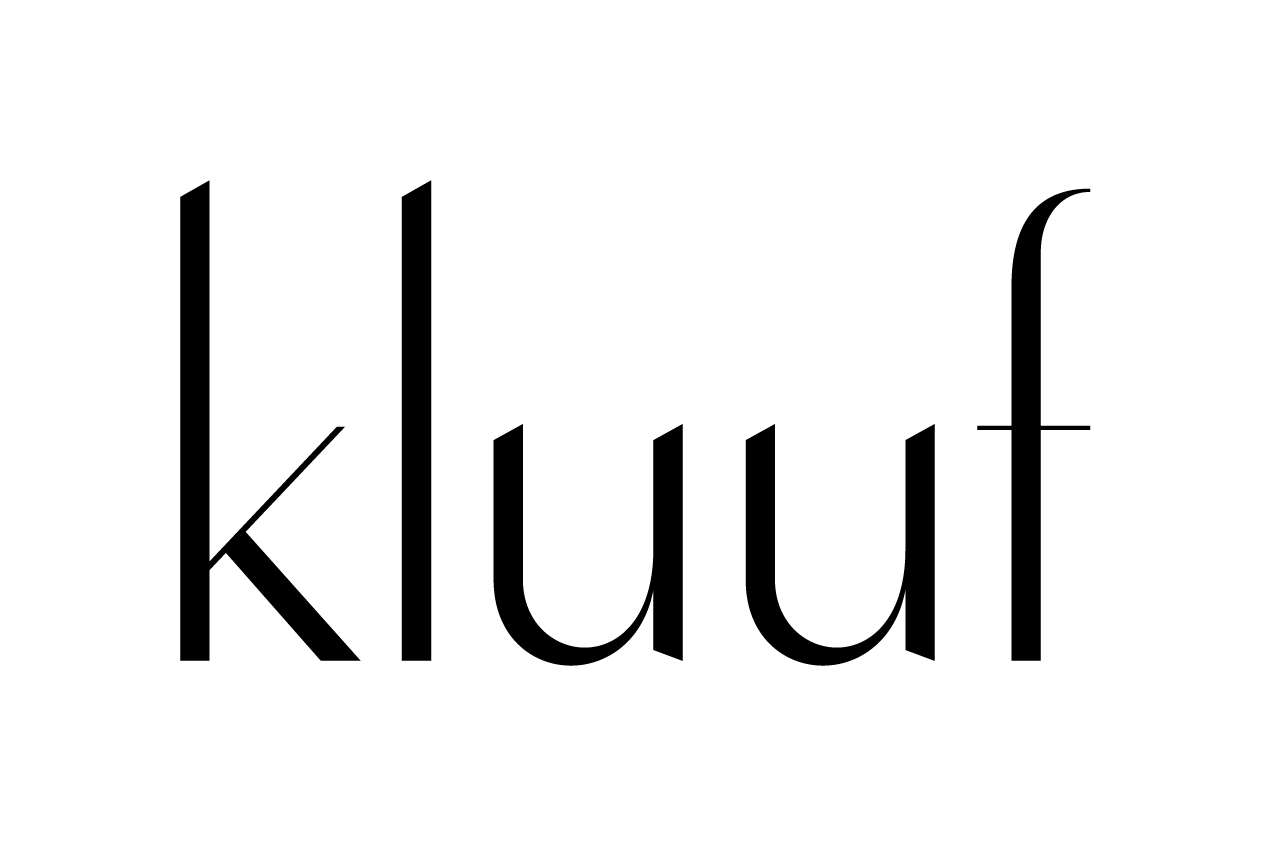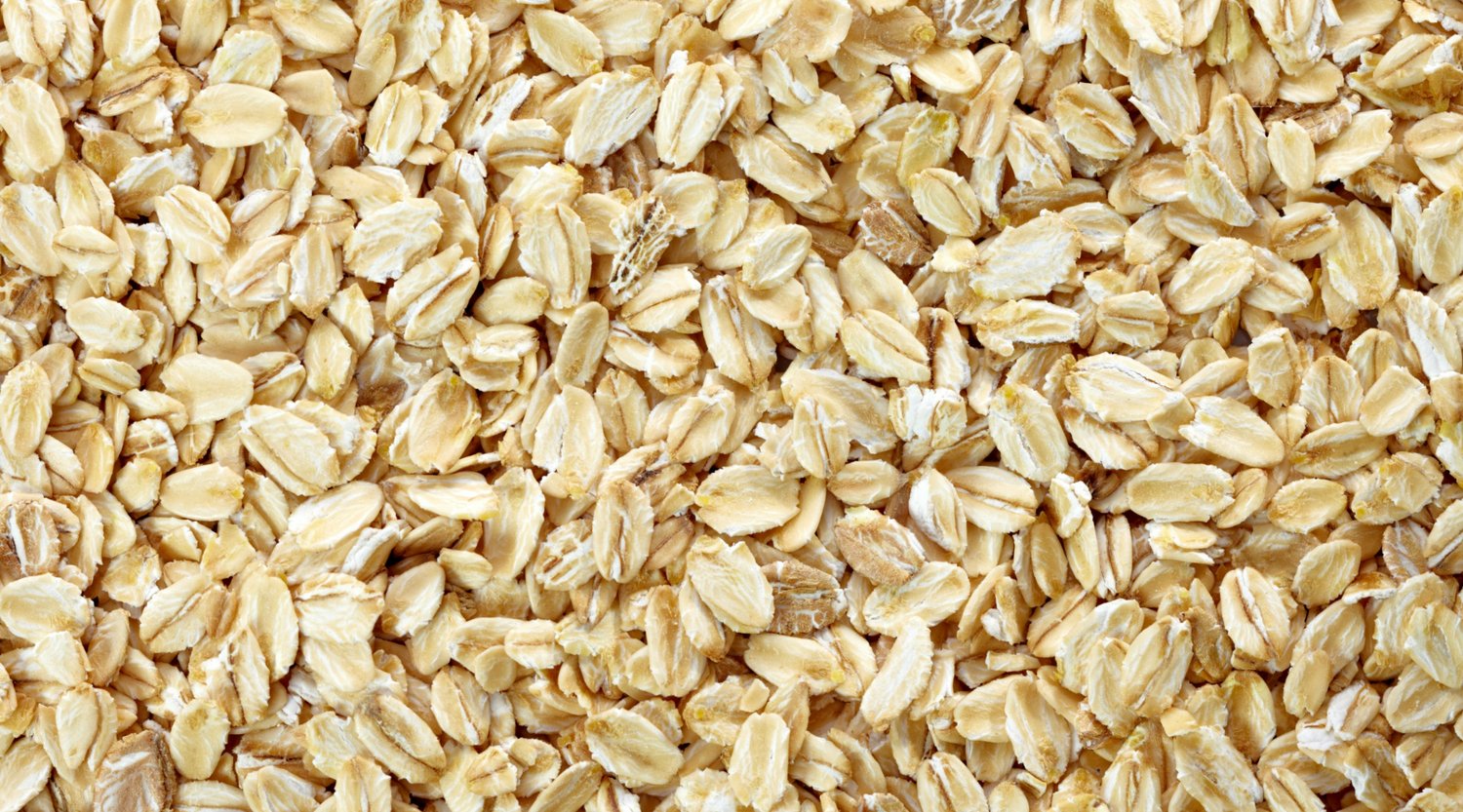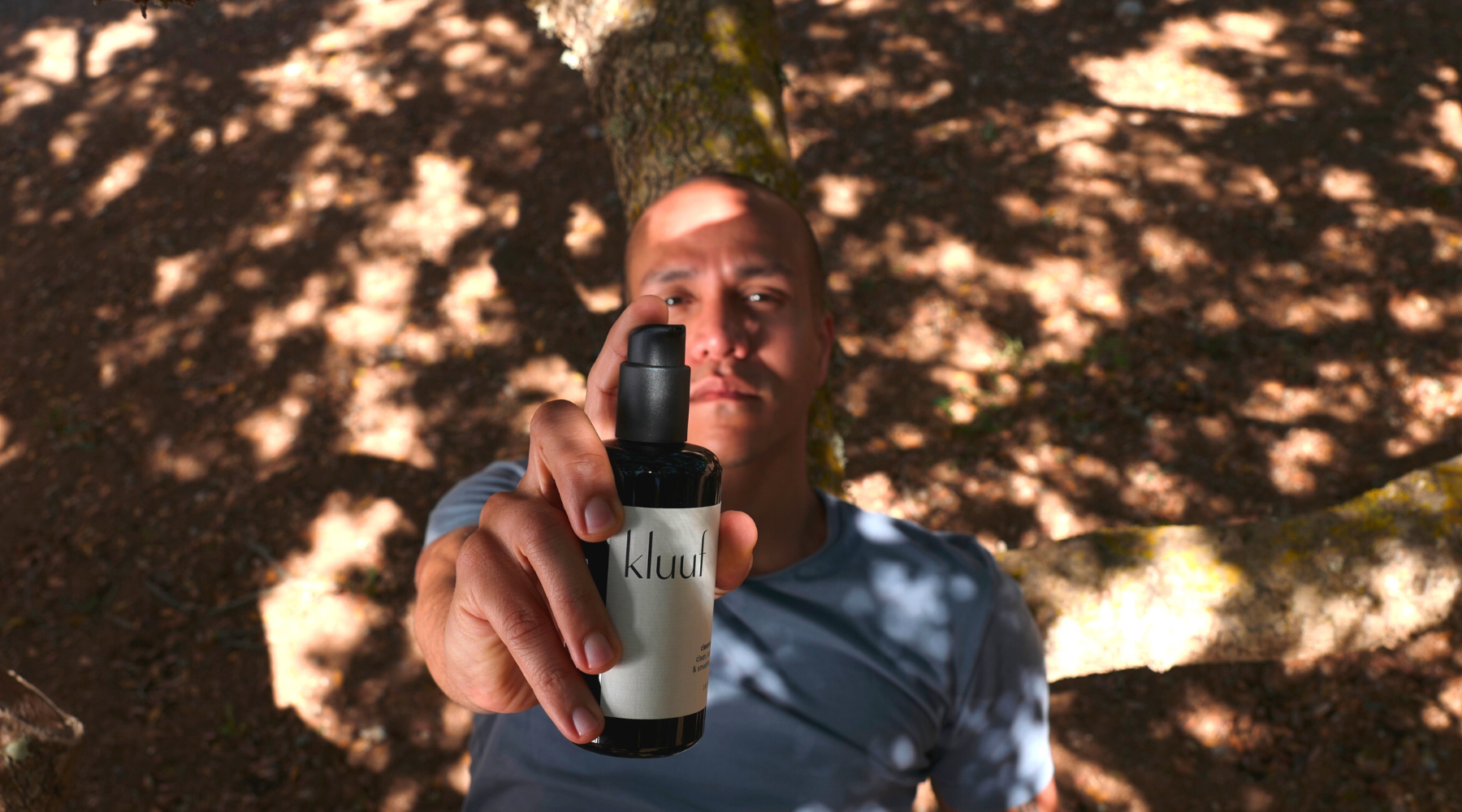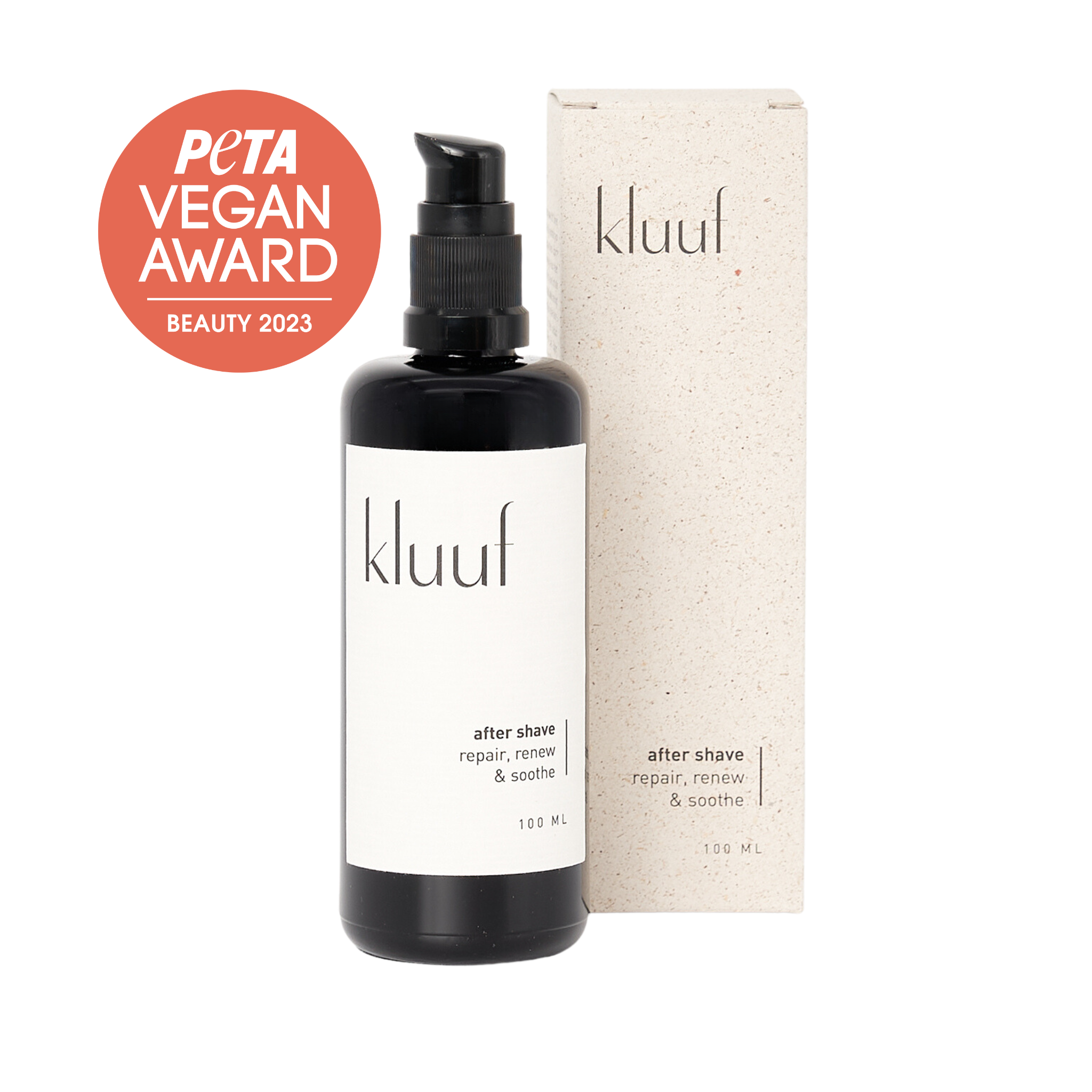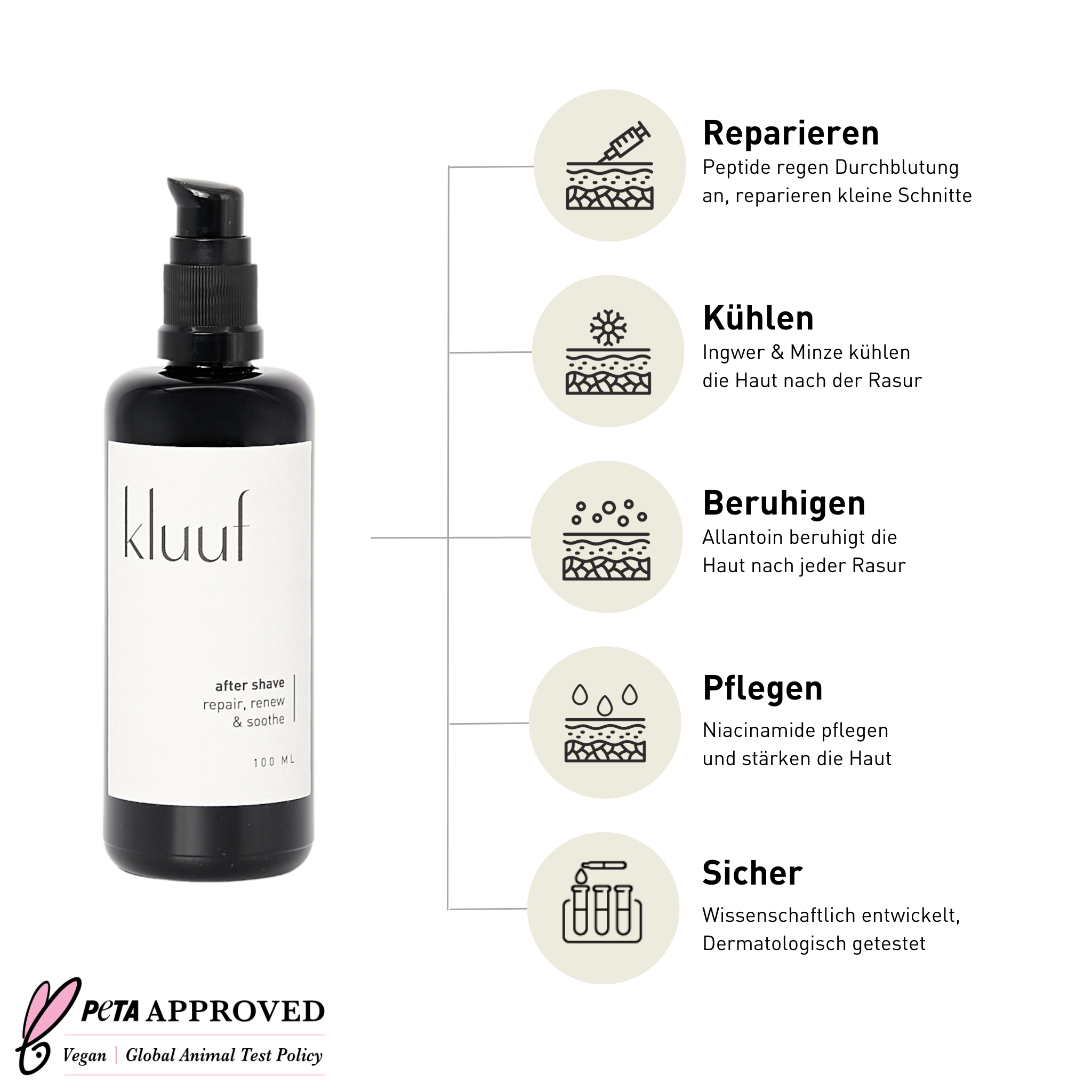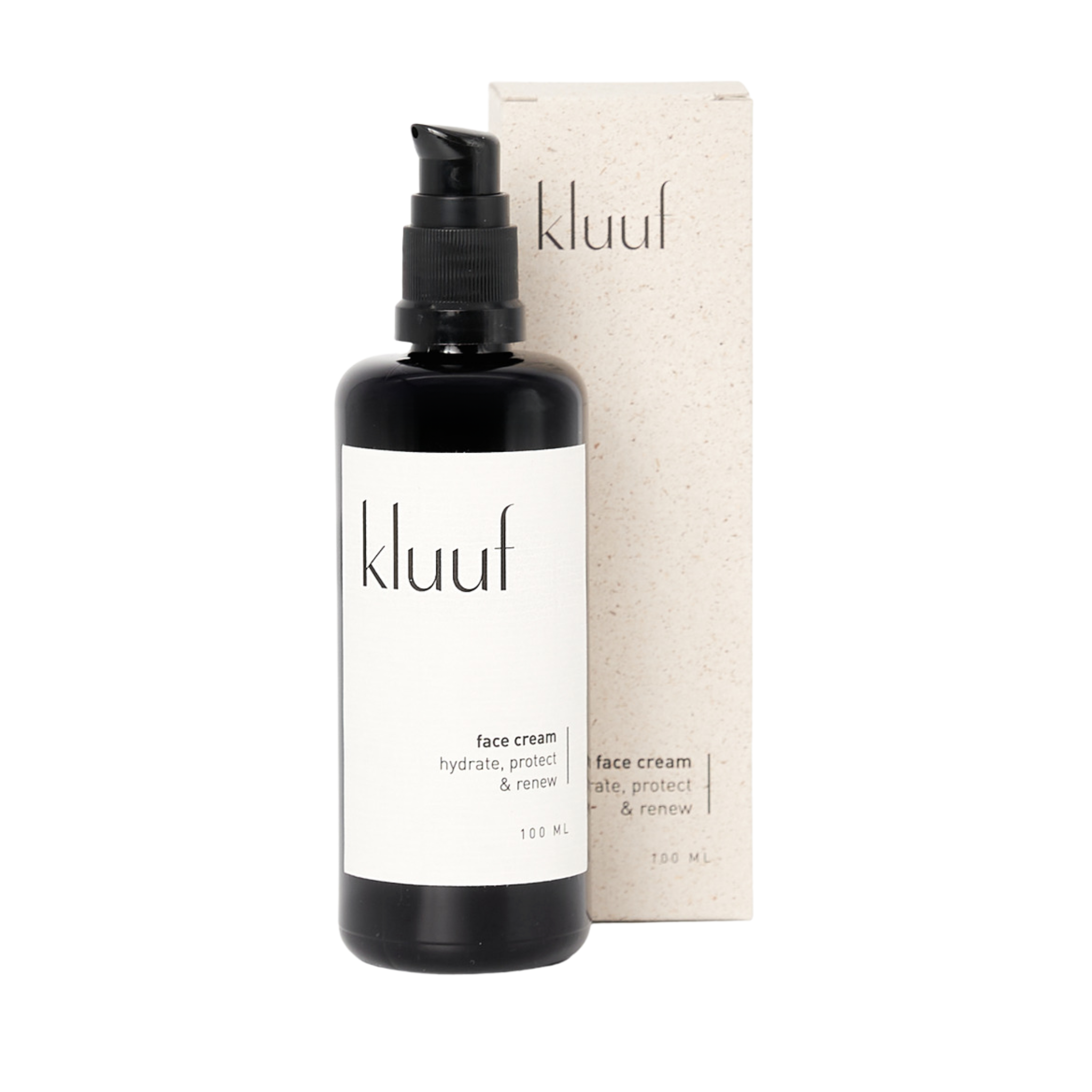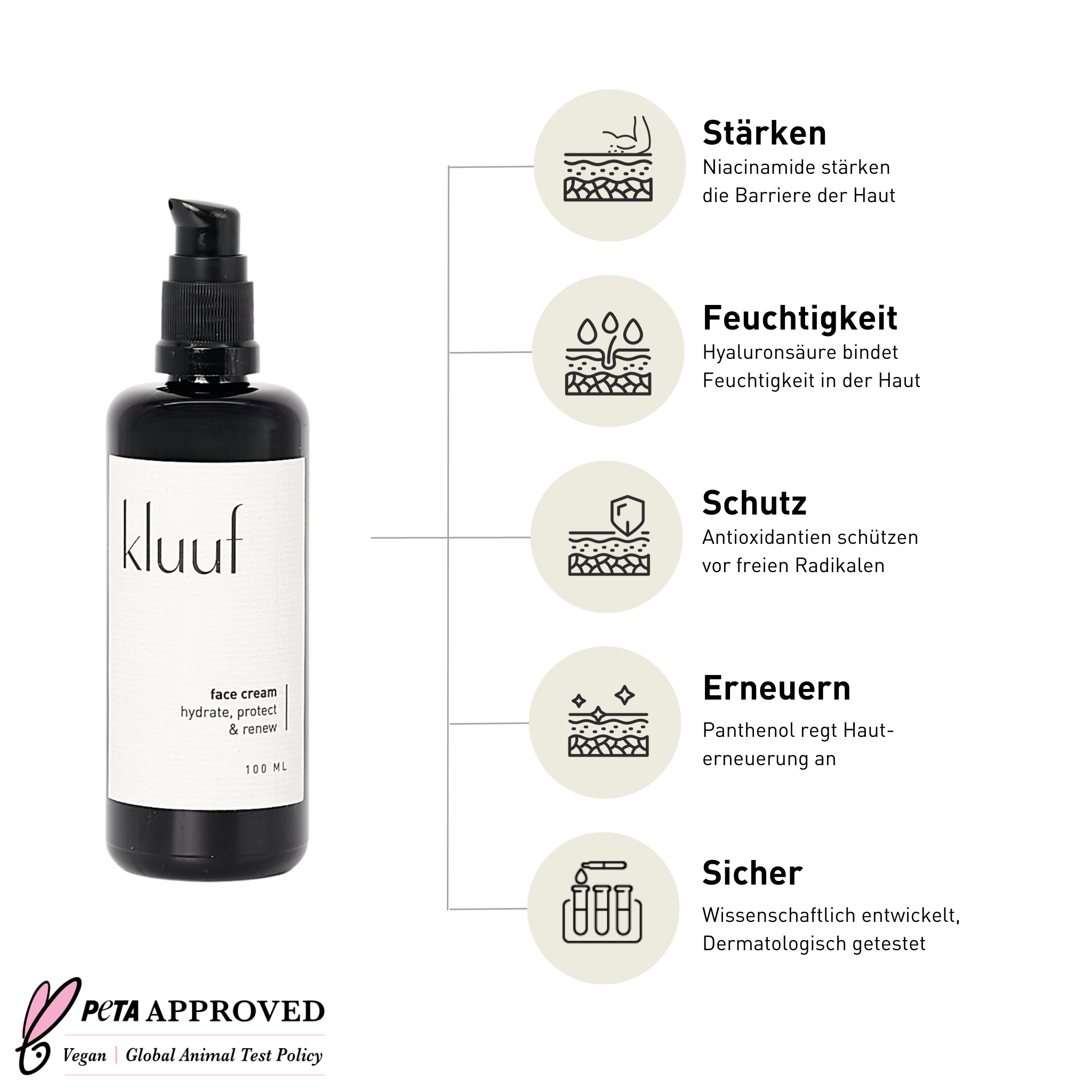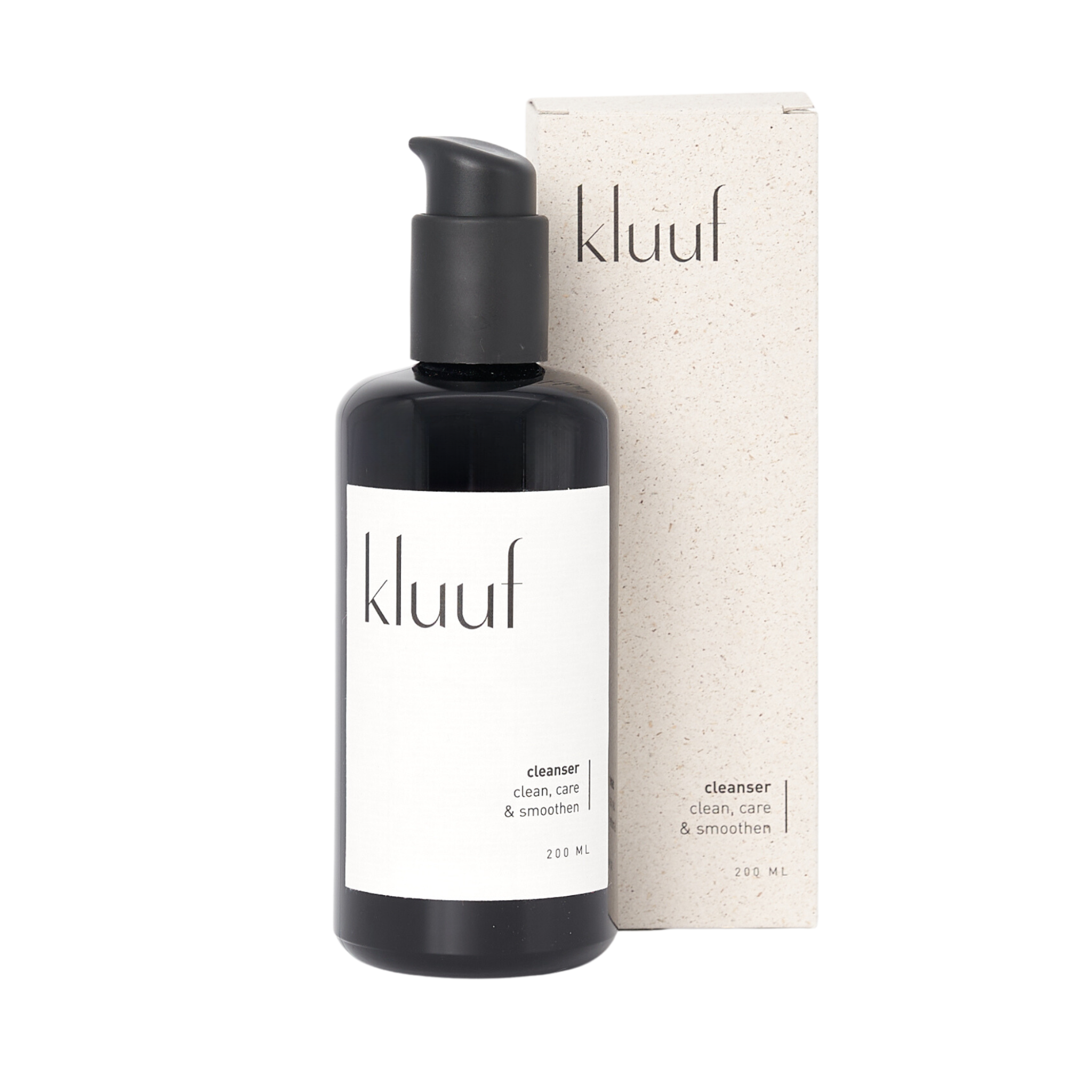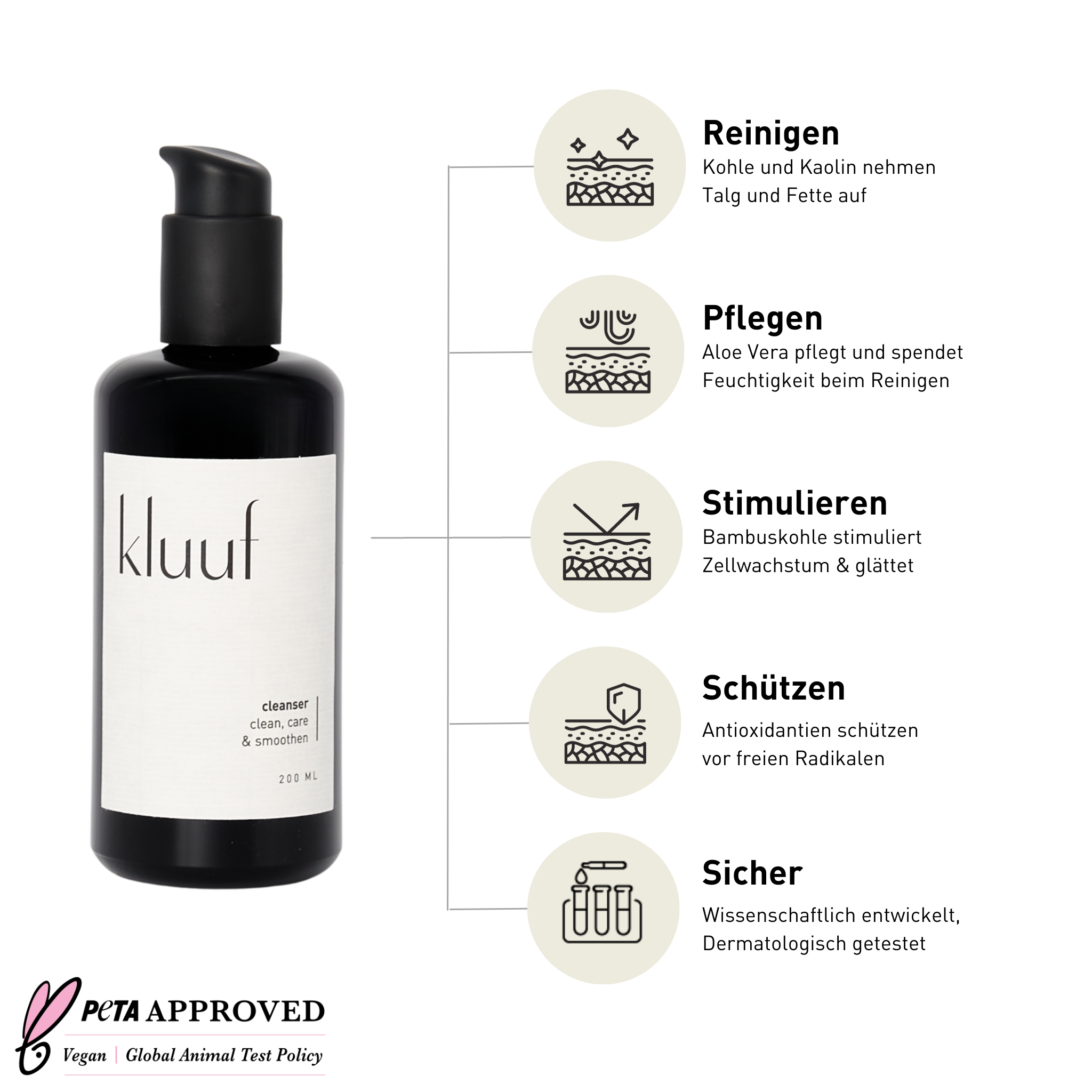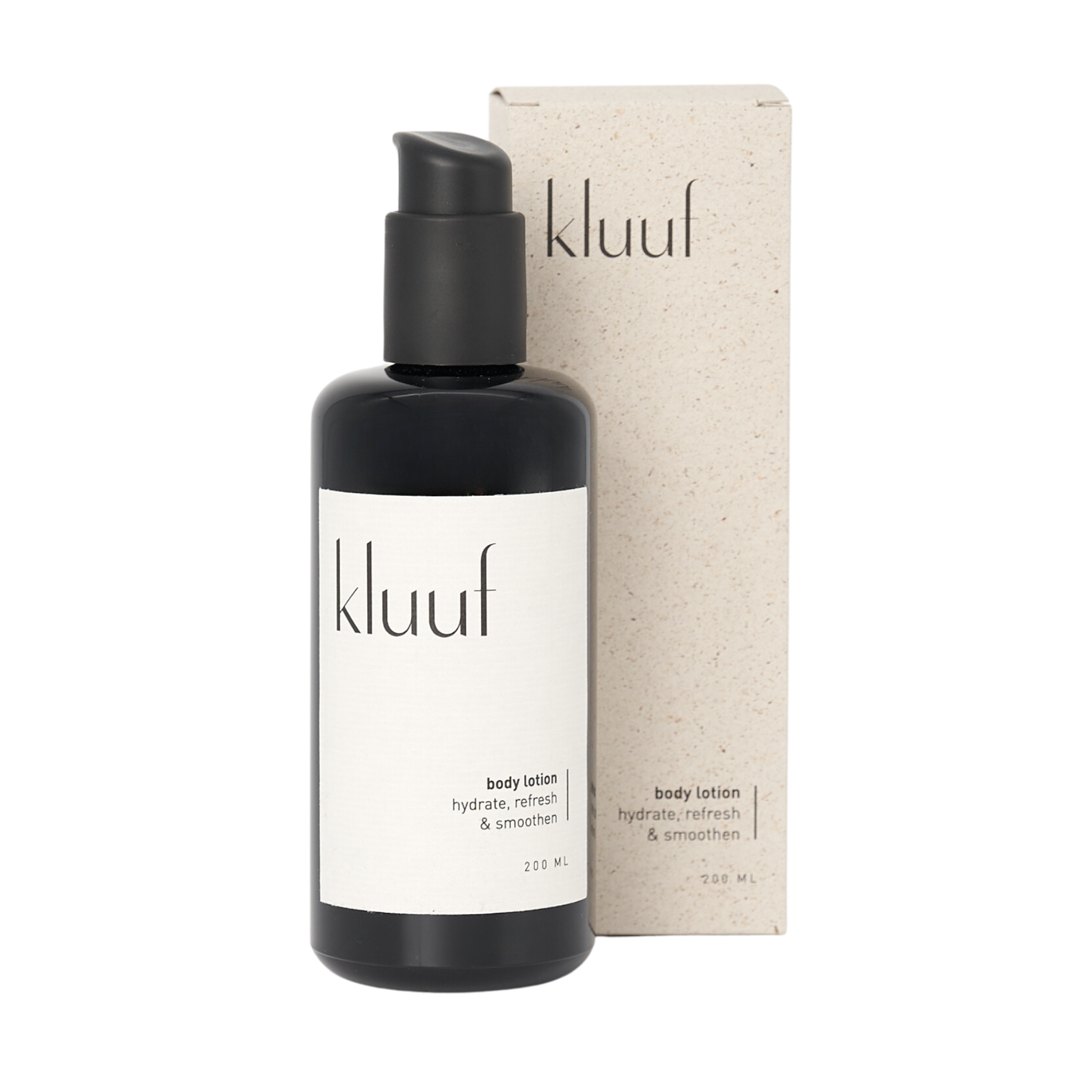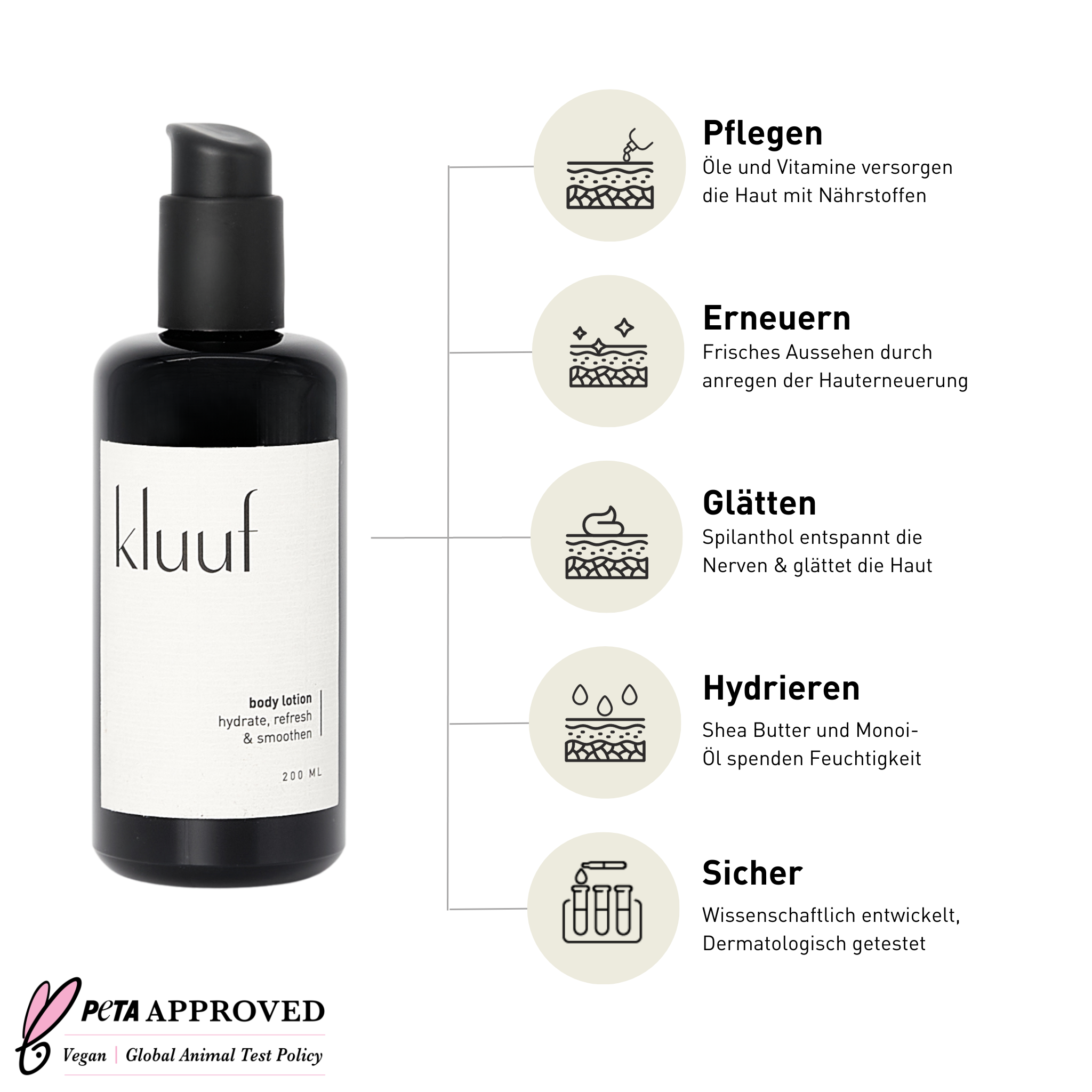Dr Julie Smith explains in her book "Why has nobody ever told me this before" that no number of therapy sessions will help our psyche more than good nutrition and the right amount of sleep.
We hold it pretty much the same with skincare: Whether it's Kluuf's straightforward face cream & cleanser or the complicated 10-step skincare routines that use three serums, two toners and four oils: The source of healthy skin is within the body and if it's not taken care of, no amount of skincare products and treatments can make it work.
Hence balanced skincare is not just about skincare products, it's about the food we put in our bodies as well. Nutrition plays a crucial role in the health and appearance of the skin. Our skin is regularly exposed to external influences such as sun, wind & pollution, which can lead to dryness, wrinkles and age spots. A balanced diet can not only prevent potential (skin) problems but also improve the appearance of the skin.
This blog explains the effects of nutrition on skin health as well as appearance. Here, Kluuf highlights both the "dos" and the "don'ts".
Nutrition and the skin
The skin is the largest organ in both men and women and plays an often underestimated role in protecting us from external stressor. The epidermis, dermis and subcutis make up the three layers of the skin, which in turn are made up of sub-layers which are composed of various cells, fibres and glands. This construct works together to maintain the health of our skin.
The appearance of the skin is a reflection of the health of the body - so a balanced diet is essential for healthy skin.
A lack of essential vitamins and minerals, on the other hand, can lead to various skin problems such as dryness, wrinkles and age spots.
Food that is good for our skin
As already mentioned, a balanced diet is essential for the health of the skin. There are some vitamins and minerals in particular that play a crucial role. These include:
Antioxidants - Antioxidants are, amongst others, found in vitamin C & vitamin E and help protect the skin from free radical damage, which can lead to premature ageing and further skin damage (check out our separate blog on antioxidants and free radicals). Antioxidants are found in various berries, tomatoes and leafy vegetables.
Vitamin C - Vitamin C is essential for the collagen production within the skin. Collagen is a protein that gives the skin its firmness and structure. It also helps to protect against UV damage (there is a separate blog on collagen which you can find here). Vitamin C can be found in citrus fruits, strawberries and guavas.
Vitamin A - Often overlooked in the shadow of vitamin C, vitamin A moisturises the skin and prevents dryness. It also helps improve skin texture. Vitamin A is found in large concentrations in sweet potatoes, carrots and leafy greens.
Omega-3 fatty acids - Omega-3 fatty acids are a real all-purpose weapon for healthy skin: They help reduce inflammation, prevent dehydration and protect the skin from further damage. Omega-3 fatty acids can be found in oily fish (e.g. salmon) and nuts, among other things.
Water - Water is probably the most obvious yet least considered of this list. Hydration works not only through face creams, but also from within. Drinking enough water regularly is essential for healthy skin and hydration.
That all being said, getting vitamins, minerals and of course water in your daily diet is an important part of promoting healthy skin and a healthy appearance.
Food that is counterproductive for healthy skin
Just as there are foods that are beneficial for healthy and strong skin, there are also foods that can have a negative effect on the skin.
Not surprisingly, these include fast food, (too much) sugar and alcohol.
Fast food - Fast food - such as pizza, burgers or hot dogs - is rich in unhealthy fats, sugar and preservatives that can lead to inflammation, acne and skin problems. Fast food can also lead to obesity, which can lead to wrinkles and age spots.
Excessive sugar consumption - Excessive sugar consumption can lead to the formation of glycation end products (AGEs) - which are nothing more than harmful free radicals to the skin (see blog). These radicals can lead to premature skin ageing and further skin damage. Excessive sugar consumption can also lead to inflammation, which can also lead to skin ageing.
Processed foods - Processed foods are of course difficult to generalise. However, there are certain subgroups that, like fast food, are rich in unhealthy fats, salt, sugar and preservatives. These not only contain few vital vitamins and minerals, but can also lead to inflammation and other undesired effects on our bodies.
Alcohol consumption - Excessive and regular alcohol consumption can dry out the skin and contribute to the development of wrinkles and age spots. Likewise, free radicals are often favoured by alcohol, which can lead to premature skin ageing, as mentioned earlier.
This part is in no way to be understood as an admonishing pointer. Everyone knows their own body best and we do not demonise any kind of food. We at Kluuf are personally convinced that a diet that is to be successful in the long term should also contain fast food and the like here and there.
However, we are not nutritionists and would like to point out that you should discuss any change in diet with experts.
What happens to the skin in case of good and bad nutrition?
The previous two sections have explained which foods are beneficial for good skin and which are counterproductive. Now let's look at the science behind how exactly fast food promotes acne and vitamins scavange free radcials:
- Acne can be made worse and pimples encouraged by unhealthy diets, as foods high in refined sugar and fat can increase insulin production and inflammation in the body. This in turn leads to increased oil production in the pores of the skin, which promotes blockages - which is one of the main causes of acne and pimples.
- Premature skin ageing is promoted by inflammation in the body (for example, from processed foods). Since inflammation can promote the breakdown of collagen, less collagen is present and the structure of the skin is weakened. Wrinkles, but also dryness are another possible effect (see blog about collagen here).
- Antioxidants scavenge "free radicals" - unstable molecules (also known as AGEs) - which damage the cells of the skin. Antioxidants act as "scavengers" of free radicals - so reduce their occurrence. Antioxidants therefore prevent possible skin damage.
- Collagen production is significantly stimulated by vitamins. The protein gives the skin firmness and elasticity. Vitamin A also helps to moisturise the skin.
So the influence of good and bad nutrition on the skin is more than significant. This can sometimes be insanely frustrating for us when, for example, the bag of crisps from the night before causes little pimples already the next morning and, on the other hand, your skin doesn't immediately start to glow after eating healthy for a day.
Therefore, we from Kluuf once again highlight that consistency and balance lead to success. And luckily, there are also face creams and lotions from Kluuf to support you on your way.
Skincare with vitamins, antioxidants and moisture:
As mentioned earlier, a balanced diet lays the foundation for healthy skin. Of course, no two skins are alike and will react differently to the dos and don'ts outlined above.
In addition to nutrition, skin care products such as face creams and lotions can also provide vitamins, antioxidants and the like.
Here is a brief breakdown of which Kluuf products contain ingredients which actively support your nutrition in keeping the skin healthy.
Face Cream: Vitamins (Niacinamide, Tocopherol), Antioxidants (Tocopherol, Beta-Carotene), Moisture (Glycerin, Sodium Hyaluronate)
After Shave: Vitamins (Niacinamide), Moisture (Glycerin, Aloe Barbadensis (Aloe Vera) Leaf Juice Powder, Sodium Hyaluronate)
Body Lotion: Vitamins (Panthenol), Antioxidants (Tocopherol, Ubiquinone), Moisture (Aloe Barbadensis (Aloe Vera) Leaf Juice Powder, Glycerin, Maris Aqua).
Cleanser: Antioxidants (Zinc Gluconate, Copper Gluconate, Magnesium Aspartate), Moisture (Aqua, Glycerin, Aloe Barbadensis (Aloe Vera) Leaf Juice Powder).
The right active ingredients complement any skincare routine, not just Kluuf's. But for those who value uncomplicated care that is not only effective & sustainable, but also does good with every treatment, here are all the Kluuf products for men that perfectly complement any diet:
Kluuf's face cream - buy here
Kluuf's body lotion - buy here
Kluuf's cleanser - buy here
Kluuf's after shave - buy here
